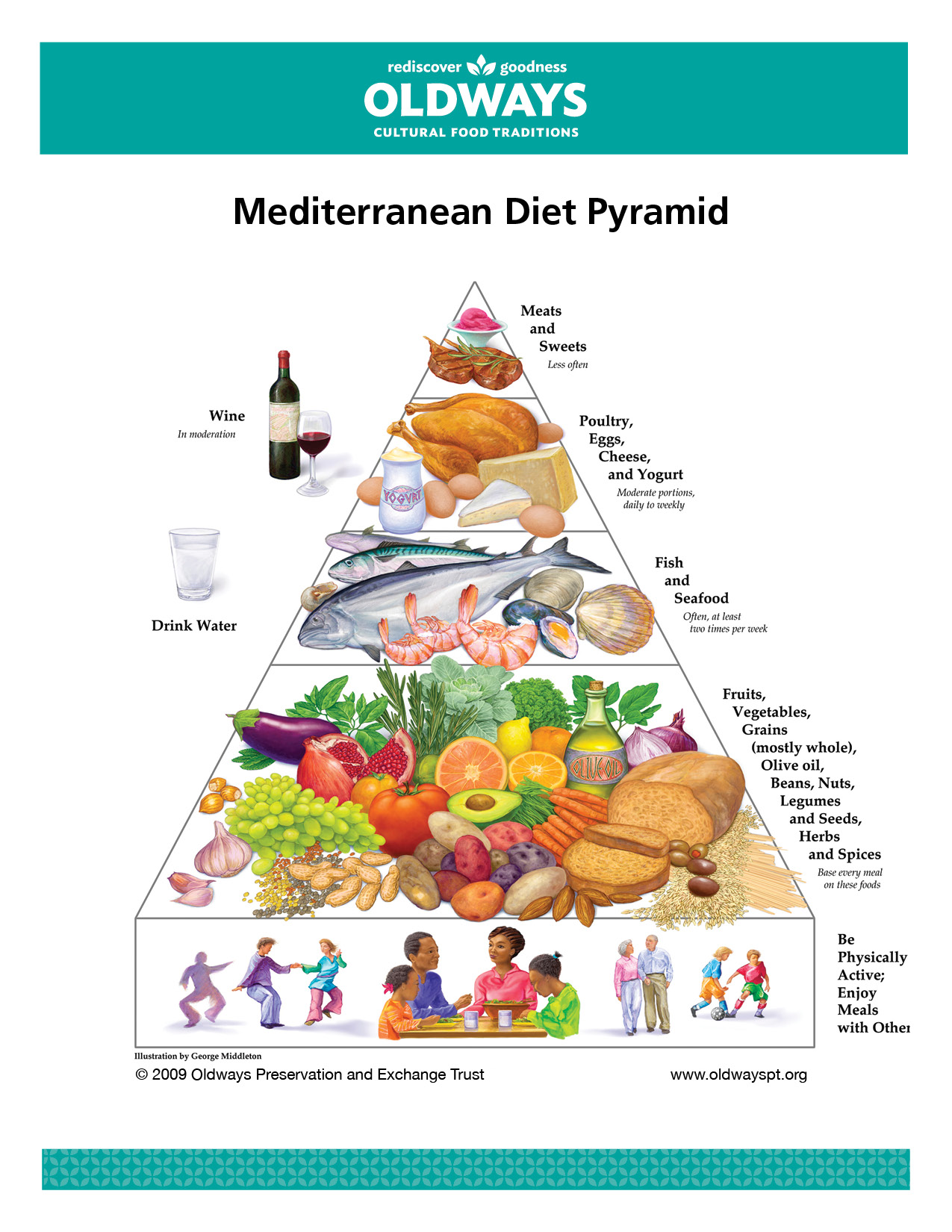Share This
If you’ve seen headlines about the Mediterranean Diet and pesticides lately, you might be confused about where the science stands on this time-honored eating pattern.
The source of this confusion is a small study published in the American Journal of Clinical Nutrition, which measured the pesticide residue in 27 adults after eating a conventional Western diet, an organic Mediterranean Diet, and a non-organic (conventional) Mediterranean Diet. Not surprisingly, pesticide residue levels were much lower in people after eating the organic diet compared with either of the conventional diets. Interestingly, the study also found higher levels of pesticide residues after eating the conventional Mediterranean Diet compared with the conventional Western diet.
Compared to many other studies about the Mediterranean Diet, this study is short with a small number participants, and doesn’t follow the long-term effects of following a conventional Mediterranean Diet. In fact, a robust body of research encompassing both epidemiological and clinical studies continually suggests that a Mediterranean Diet is linked with a lower risk of numerous chronic diseases, especially when compared with a Western diet of highly processed fast foods.
Whatever risk there may be associated with eating conventionally raised fruits, vegetables, seafood, and other Mediterranean staples, it is clear that the benefits far outweigh the risks. Sensationalist articles that caution against the “danger” of switching from a regular Western diet to a Mediterranean Diet are the real threat to public health—not the increased pesticide exposure from eating more fruits and vegetables.
Ever eager to sow confusion and debunk well established science, some journalists have extrapolated these results even more irresponsibly to suggest that the Mediterranean Diet may cause infertility—something this small, 2-week intervention was not at all designed to even evaluate. On the contrary, studies repeatedly demonstrate that following a Mediterranean Diet during pregnancy is linked with healthy outcomes for both mothers and children, and that young women undergoing IVF who follow a Mediterranean Diet actually have better odds of having a successful pregnancy.
Nutrition and health experts of every stripe (from vegan to Paleo and everything in between) agree that sensationalism doesn’t have a place in nutrition reporting, and that much of the confusion surrounding nutrition is completely unnecessary. Next time you come across the results of a shocking new nutrition study, keep in mind the advice of more than two dozen leading nutrition and health experts who Oldways gathered together to discuss these same issues: “new evidence should be added to what was known before, not substituted for it sequentially.”
The American Journal of Clinical Nutrition study brings to light an important conversation about acceptable pesticide usage in agriculture and our wider food system. However, the fact remains that what we eat (such as fruits, vegetables, whole grains, and seafood) still appears to have a much larger impact on health compared with how it is grown (organic or not). We do not want the public embracing organic fruit flavored gummy snacks in place of conventionally grown whole fruit.
Once individuals adapt to eating a balanced diet filled with produce, whole grains, and other healthy foods, then we can begin to have conversations about which items within those categories might be an optimal pick. In the meantime, however, a Mediterranean Diet is a proven pattern for both human and planetary health, regardless of whether or not organic foods are in your budget.


Add a Comment